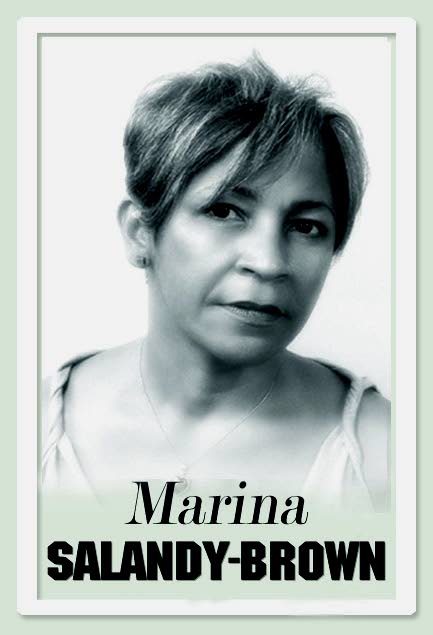Beware big brother syndrome

When I returned to TT on March 20, just two days ahead of the enduring border closure, my temperature was taken in the airport arrivals lounge by someone using what looked like a toy gun and wearing some sort of loose body suit. I was waved on. No high temperature, I presumed.
Of course, this is Trinidad, no explanations about anything, only the usual high-handed behaviour, as if anyone in professional authority is immediately superior to everyone else. You are robbed of your rights by the ruthless exercise of small power. The desire to be vengeful is impressive.
At the immigration desk, nothing unusual either, but before I received my stamped passport the officer asked for my mobile telephone number, and unsuspectingly I gave it to him.
Five weeks later when I hobbled out of my lair, for the first time in what seemed like years, dragging my still post-operative, aching body to my car to drive to the pet shop and my usual fruit and vegetable vendors, I received a text message from the Ministry of Health telling me to stay home and save lives. I was more than a little incensed. I could not save the lives of those in my household without food.
A week later I ventured out again, that time to purchase medication, and again I received a command on my mobile phone to stay home.
That was taking it too far.
My compulsory traveller’s self-quarantine had ended after 15 days. The reminders should only relate to that period. It is a violation of my privacy to retain my mobile number and to be tracking me as if I were a common criminal six weeks later. When will it stop?
I complained to a friend who had been told a worse version of my experience. Someone else she knows who had returned, like me, on the verge of the border closure had received two calls from her local police station, enquiring about her movements. It was intimidation, since no rule had been broken, as she too was long out of enforced self-quarantine.
This is not a small matter. It is an infringement of our human rights.
The government has done a splendid job at winning the confidence of the public in apparently containing the virus via a well considered and executed plan of different measures, including elementary contact tracing. I have no objection to my contact being used for the purpose for which it was sought, but once that period is over it is correct to destroy the information or at least to call off the hounds.
Our government, like elsewhere, is analysing location data transmitted by our mobile phones to check up on us. This is the same or similar technology used for counter-terrorism operations but diverted for covid19 to establish virus transmission chains.
I am making a stand about the guarding of our right to privacy when in fact so little is now private and the horse has long bolted, but we must remain vigilant. Imagine the possible existential threat we face now that arch rivals Google and Apple have overcome their mutual dislike to devise an app integral to all phones that allows us to be tracked constantly. We have been slow to realise just how invasive modern personal technology is and we have colluded in waving goodbye to an important and essential right.
The NY Times recently reported that South Korea government agencies are using surveillance-camera footage, smartphone location data and credit-card purchase records to trace recent movements of coronavirus patients. When they also posted detailed location histories of people who tested positive for the coronavirus, the sufferers became the object of blaming and shaming.
The big question now is that since the State, here and elsewhere, has taken so much control of our lives, how will the people wrench it back?
In Hong Kong the young protesters very quickly resumed their mass demonstrations against Chinese state power. In India, where over 90 million people have reportedly downloaded a home-grown virus-tracing app, insisted upon by the government, those whose brains are still alert are assertive in their questioning of whether the State is using the opportunity to introduce a permanent big-brother surveillance system. In the US, civil liberties groups have been striving to achieve that all contact-tracking apps are voluntary, not compulsory, and are demanding reassurances that the proposed compulsory logging of information by businesses of all customers’ contact information in certain states would be securely held, not shared, and destroyed within a certain period.
After Cambridge Analytica we have all the evidence we need as to just how we are manipulated by unexpected forces, and look at the terrible results of that experience. The last thing we want is any large-scale central data collection of people. That is just the thin edge of the wedge. It could easily happen here and even if it means that real criminals can be tracked, the personal price we pay would be inordinate.


Comments
"Beware big brother syndrome"